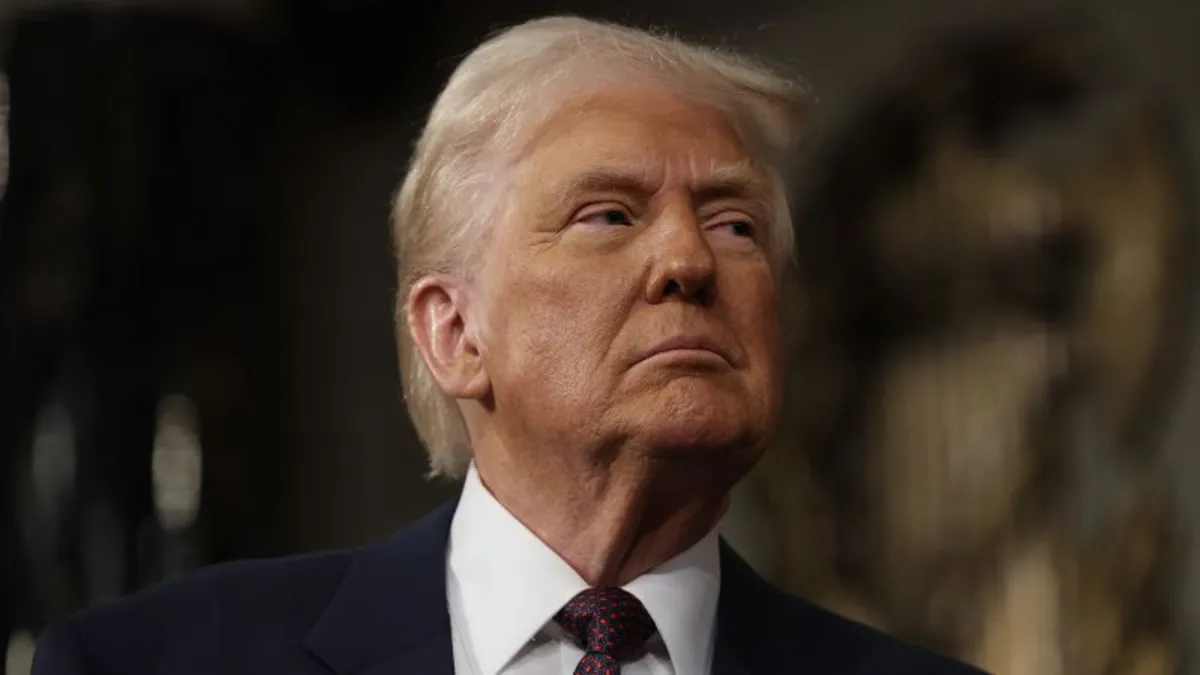
US District Judge James Boasberg has announced an extension to the deadline for the Justice Department to submit crucial information regarding the deportations conducted by the Trump administration under the Alien Enemies Act. Initially set for today at noon, the new deadline is now Thursday at noon. Judge Boasberg, who has previously presided over the Foreign Intelligence Surveillance Court, expressed uncertainty about how complying with his order would endanger state secrets.
In his four-page order, Boasberg emphasized that if the DOJ opts to invoke the state-secrets privilege, he is required to assess whether the situation warrants such a claim. He also firmly rejected arguments from the Justice Department suggesting they should not comply with his order, which they believed overstepped his authority when he attempted to halt deportations of individuals under the Alien Enemies Act. “As the Supreme Court has made crystal clear, the proper recourse for a party subject to an injunction it believes is legally flawed is appellate review, not disobedience,” the judge stated.
In a separate development, President Donald Trump reported that his call with Ukrainian President Volodymyr Zelensky was “very good” and lasted approximately one hour. Much of the conversation focused on Trump’s recent discussions with Russian President Vladimir Putin regarding bilateral relations. “We are very much on track, and I will ask Secretary of State Marco Rubio and National Security Advisor Michael Waltz to provide an accurate description of the points discussed. That statement will be released shortly,” he added.
This call marks the first known interaction between Trump and Zelensky since a significant fallout in the Oval Office 19 days ago. Meanwhile, the Trump administration has decided to pause $175 million in federal funding to the University of Pennsylvania, alleging that the university has violated an executive order prohibiting transgender women from competing in women’s sports. A White House official confirmed this pause to CNN, which has reached out to the university for comments.
The Justice Department is making a last-minute effort to withhold information from a federal judge concerning deportations carried out by the Trump administration under the Alien Enemies Act. The DOJ claims that revealing this information could pose risks to national security. “The pending questions are grave encroachments on core aspects of absolute and unreviewable Executive Branch authority relating to national security, foreign relations, and foreign policy,” the DOJ stated in a filing to Judge Boasberg.
In an emergency filing submitted just hours before the noon deadline, Attorney General Pam Bondi and other top DOJ officials requested that Boasberg postpone the deadline to allow them to consider whether to invoke the state secrets privilege. This ongoing dispute puts Boasberg, an appointee of former President Barack Obama, in direct opposition to Trump’s Justice Department.
Trump's special envoy Steve Witkoff stated that the pause agreed upon by Trump and Putin includes “energy and infrastructure.” However, this description has led to confusion between Washington and Moscow. While the White House referred to “energy and infrastructure,” the Kremlin insisted that the agreement pertains solely to “energy infrastructure.” This discrepancy could have significant implications, as a pause on infrastructure attacks would encompass a broader scope.
Ukrainian President Zelensky expressed concern that Putin had already violated his commitments, claiming that Russia attacked Ukraine using 150 drones overnight, including strikes on energy facilities. The Kremlin also condemned a separate attack on an oil facility in Russia, asserting that it demonstrated Ukraine’s unwillingness to negotiate.
As the Federal Reserve navigates economic challenges under Trump’s administration, concerns about inflation and growth are mounting. Since Trump took office, significant changes in trade policy, immigration, and international relations have left consumers and investors on edge. Analysts are predicting that the economy may trend toward stagflation, characterized by rising inflation and stagnant economic growth.
In light of these economic pressures, Federal Reserve officials are likely to maintain interest rates at their current levels. Fed Chair Jerome Powell is expected to reaffirm that the economy remains in acceptable condition, despite projections indicating a trend toward stagflation.
In political news, Senate Minority Leader Chuck Schumer defended his decision to advance a Republican-led government funding bill, which helped avoid a potential shutdown last Friday. Schumer acknowledged the backlash from within his party but stressed the importance of averting a government shutdown that could empower Trump to enact severe cuts to federal programs and jobs.
“I knew I’d get flak. You know, I’ve learned in politics through the years, the higher up you climb on that political mountain, the more fiercely the winds blow,” Schumer stated. He argued that the consequences of a shutdown would have been detrimental, allowing Republicans to further their agenda.
The political landscape continues to evolve as legal battles, international relations, and economic policies intersect under the Trump administration. With ongoing scrutiny from the judiciary and contentious debates over national security, the implications of these developments are far-reaching. As the nation watches closely, the outcomes of these decisions will undoubtedly shape the future of both domestic and foreign policy.